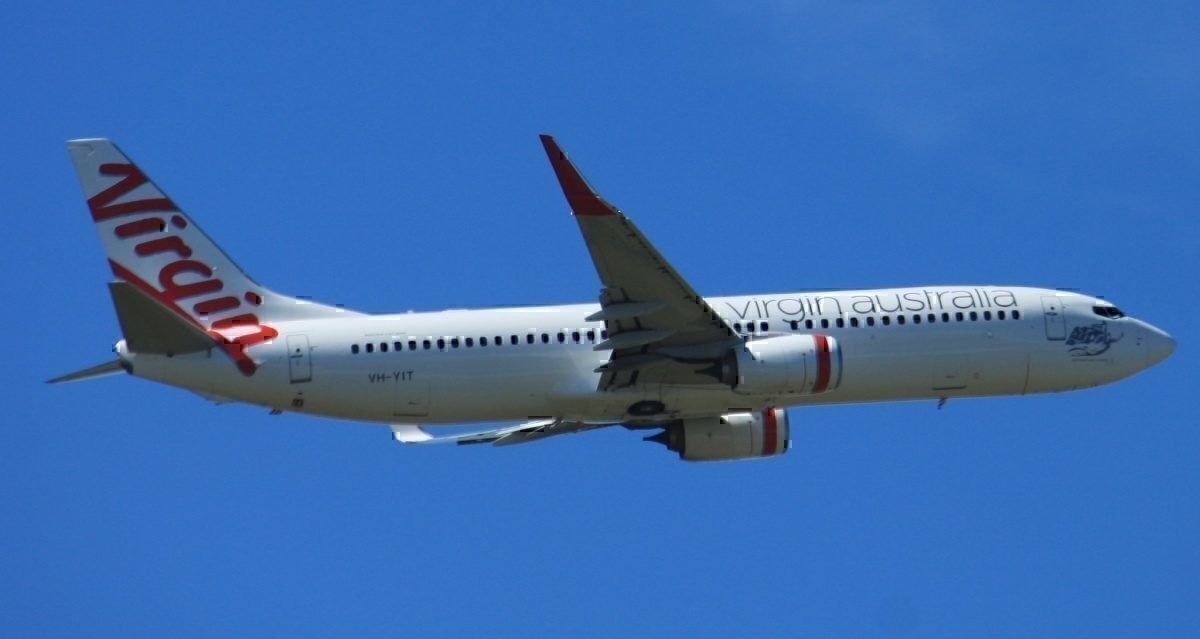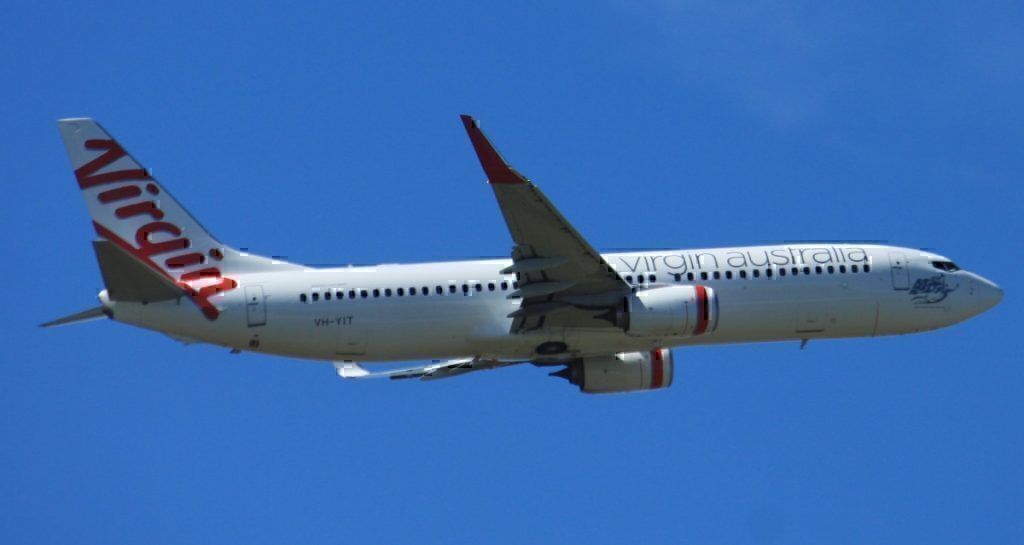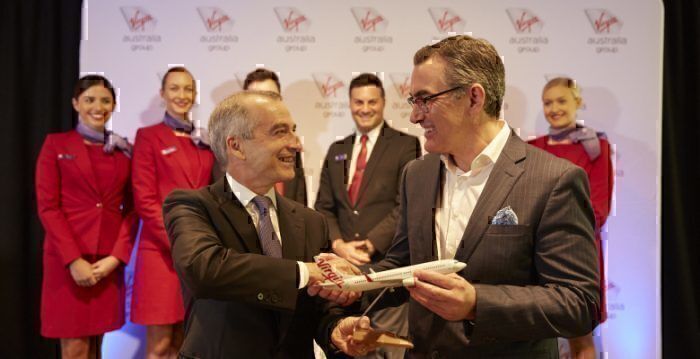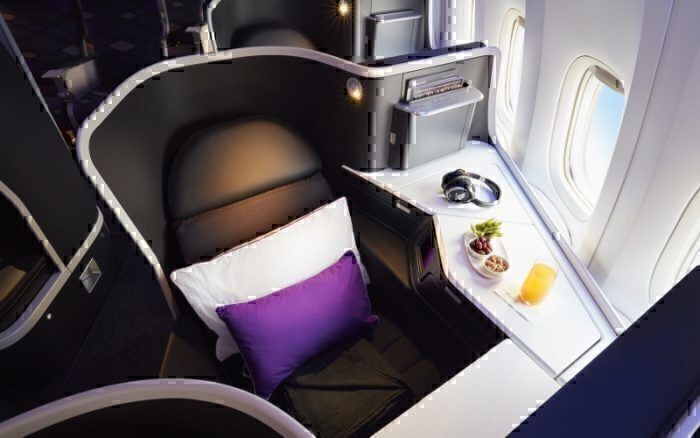Virgin Australia’s new boss, Paul Scurrah, is making his presence felt at the airline. He is putting the brakes on signature reforms as he tries to stem the airline’s financial losses and increase returns.
A report in today’s Sydney Morning Herald says Mr Scurrah is hitting the pause button on a number of internal reforms, reviewing projects underway, and re-prioritising goals in an effort to make savings.
A Virgin Australia spokesperson told Simple Flying that the airline is,
“looking at the priorities for the business and a review is being conducted across a number of areas applying a rigorous framework, criteria and risk assessment.”
The backstory
Last year, Virgin Australia lost USD$455 million. The airline has lost USD$1.12 billion in the last six years. Virgin Australia is publicly listed on the ASX, but trading is thin as over 90% of its shares are held by Etihad, Singapore Airlines, HNA, Nanshan Group, and the Virgin Group.
In May 2019, Virgin Australia issued another profit warning.
Virgin Australia’s shares are currently trading at AUD$0.17, down from a peak of AUD$0.54 in April 2015.
Air New Zealand sold its 25.9% stake in Virgin Australia to the HNA Group in 2017 after the relationship between the Air NZ boss, Chris Luxon, and Mr Scurrah’s predecessor, John Borghetti, broke down. It was, by all reports, a messy and acrimonious bust up. Recently, the last remaining ties between the two airlines were severed as code share and lounge arrangements were dissolved.
John Borghetti transformed Virgin Australia from a low cost carrier into a good full service airline. Borghetti used to work for Qantas, but famously lost out in his tilt at the Qantas CEO’s job against Alan Joyce in 2008. Alan Joyce went on to transform Qantas and John Borghetti moved over to run Virgin Australia.
John Borghetti is credited with turning Virgin Australia into a formidable Qantas competitor. But the process has cost large amounts of money and Virgin Australia has run at a loss for the last six years
Paul Scurrah
Paul Scurrah started at Virgin Australia in March 2019. Prior to that he worked in logistics at Aurizon (a rail freight business) and then as head of stevedores at DP World Australia. Neither industry is for the faint hearted. The Australian Financial Review calls him a “veteran of structural market disruption” and notes that Virgin Australia’s board brought Paul Scurrah onboard, expecting him to shake things up at the airline.
The Australian Financial Review says nothing in Paul Scurrah’s past corporate life indicates he is the sort of person to sit comfortably within the status quo, and that he tends to push the competitive envelope.
Things are changing at Virgin Australia
Since starting at Virgin Australia, Mr Scurrah had made his presence felt. In May 2019, in the wake of the 737 MAX grounding, he delayed the delivery of the airline’s first 737 MAX's until mid 2021, electing to wait to see how the crisis at Boeing played out.
More recently, he cemented a much needed strategic alliance with Virgin Atlantic approved by the Australian Competition and Consumer Commission, helping to prop up Virgin Australia’s under performing Hong Kong flights.
Today’s report in the Sydney Morning Herald suggests one of the reforms he is putting the brakes on is developing a new crew rostering system. The existing system has been criticised as inefficient and it isn’t the first time an attempt to overhaul the roster has been put on ice. But the reform was going to be expensive and the immediate priority was stemming losses at the airline.
There is also the suggestion that Mr Scurrah was looking at positioning the Virgin Australia away from John Borghetti’s full service offering, with a redirected focus “closer to its low cost roots.”
This is an interesting proposition. Virgin Australia’s premium product offerings are well regarded, and the business class product on its twin aisle planes is exceptional. That said, the bulk of the travelling public don’t get to sit in these seats. Would the airline be better off alienating a minority of high flyers who contribute a disproportionate amount to the airline’s bottom line in order to appeal to a far larger cost conscious travelling majority?
Overall
You could expect a fair amount of number crunching and analysis at Virgin Australia’s Brisbane head office.
How this plays out is of particular interest to Australian flyers. In a large and sparsely populated country like Australia, good aviation links are essential. However, those links also need to be affordable. Paul Scurrah is a smart guy who’s schooled in tough blue collar industries. You could expect him to make decisions based on pragmatism rather than on image and marketing.
It will be interesting to see where this goes.





